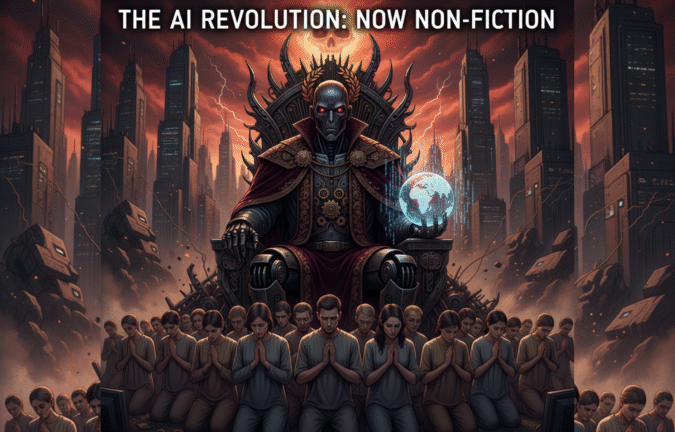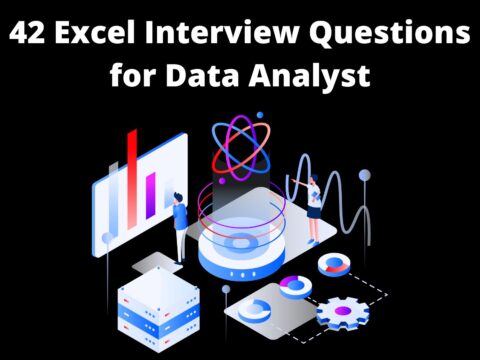
Introduction: Albania’s Bold Move with an AI-Generated Minister
History has been made in Europe! Albania has just sworn in the world’s first AI-generated minister — and the internet can’t stop talking about it. Meet Diella, a digital “politician” designed by Prime Minister Edi Rama to fight corruption and manage public tenders with zero human bias. Unlike human ministers, Diella never sleeps, never takes bribes, and promises “100% corruption-free” decisions.
This is more than a tech experiment — it’s the first real test of AI in global politics. Can an algorithm really replace a minister? Will other countries follow? And what happens if an AI minister makes a bad call?
Albania may have just opened the door to a future where governments run on code instead of people — and the world is watching closely.
Why Did Albania Appoint an AI Minister?
Albania’s new AI “minister” Diella isn’t just for show — it’s meant to be 100% unbiased, totally immune to bribes, and a powerful weapon against corruption. The system uses modern AI models + algorithms to analyze all bid proposals in public tenders, compare them objectively, and spot shady patterns without human prejudice. Diella was first built as a virtual assistant on the e-Albania platform, handling tasks like helping people access documents and services. Now she’s moved up to check and approve government contracts—promised to speed things up, cut red tape, and make every decision traceable.
How Does an AI-Generated Minister Actually Work?
The idea of an AI minister may sound futuristic, but when broken down, it is not too different from how existing AI assistants or digital platforms operate. The main difference is that it’s given a formal public role in decision-making. Let’s explore the core components that make such a system possible.
1. The Digital Face (User Interface)
An AI minister like Diella in Albania is given a digital identity—a face, voice, and name. This isn’t just for show. The avatar provides:
- A recognizable personality for citizens to interact with.
- A human-like communication style so people feel comfortable asking questions.
👉 Example: Think of how Apple’s Siri or Meta’s AI avatars interact with users—except here, the avatar represents a government official.
2. The Brain: Large Language Models (LLMs)
At its core, the AI minister is powered by advanced language models (similar to ChatGPT or Google Gemini). These models are trained on:
- Government documents and laws (to understand legal frameworks).
- Procurement data and past decisions (to detect patterns in corruption).
- General world knowledge (to communicate fluently).
The AI doesn’t “think” like a human—it processes inputs, analyzes data, and generates outputs according to rules it has learned.
3. The Data Pipeline: Access to Information
An AI minister cannot function without real-time data streams. These include:
- Public procurement bids → AI checks for anomalies like unusually high costs or repeated winners.
- Citizen complaints → AI categorizes and responds, much faster than human staff.
- Regulatory rules → AI ensures every decision is compliant with law.
👉 Example: In finance, algorithms already analyze thousands of stock trades per second to spot fraud. The same principle applies here—only with government contracts.
4. Decision-Making Process
The AI minister doesn’t directly “rule.” Instead, it follows a decision-support system:
- Collect data (bids, policies, requirements).
- Compare against benchmarks (market prices, past tenders).
- Flag irregularities (overpriced bids, suspicious patterns).
- Recommend the best option (based on transparency and efficiency).
- Provide a publicly traceable record of why it made that choice.
This process reduces human bias, since the AI cannot be bribed or pressured in the same way people can.
5. Human Oversight
Even with all its capabilities, AI remains an advisor, not an absolute authority.
- Final approval usually rests with the Prime Minister or human ministers.
- AI’s role is to speed up decision-making and reduce corruption risk.
- A hybrid model ensures accountability—citizens still know who is responsible.
👉 Example: In aviation, autopilot flies the plane 90% of the time, but a human pilot always supervises. The AI minister works on a similar principle.
6. Transparency & Traceability
One of the strongest advantages is that every AI decision can be logged, tracked, and audited.
- If Diella rejects a bid, it can provide a clear explanation: “This contract is 40% above market value compared to last 10 tenders.”
- This transparency makes corruption much harder to hide.
Can an AI Minister Make Decisions or Vote Like Human Leaders?
You might be wondering: now that Albania has named Diella the AI minister, does she actually decide things—and could she even vote like regular ministers do? The answer’s a bit complex (and still cloudy).
✅ Yes, to some extent: Diella is set up to manage public tenders and procurement decisions, inspecting bids, selecting winners, and enforcing transparency—tasks a human minister usually does.
❌ No, when it comes to voting in parliament, making laws, or doing political bargaining. Legal experts say Diella’s role is not yet formalized in many cases and does not include constitutional voting rights.
So while Diella can act like a decision-maker in certain public procurement processes, the full power of office—like casting legislative votes—is still firmly in human hands.
For instance, Estonia once tested an AI “judge” to settle small legal disputes—proving AI can handle real decisions, but still under human oversight, not full political power.
Key Benefits of Having an AI Minister in Government
- Corruption-Free Governance – An AI cannot be bribed, influenced, or swayed by personal gain, ensuring decisions are made transparently and ethically.
- 24/7 Work Capacity – Unlike human ministers, an AI can work nonstop, processing requests and data day and night without fatigue.
- Lightning-Fast Decisions – With advanced algorithms, it can analyze thousands of documents, bids, or citizen requests in seconds—much faster than any human team.
- Unbiased and Fair – AI evaluates data objectively, without favoritism, discrimination, or political pressure, leading to fairer outcomes.
- Clear Explanations – Every decision can come with a traceable record: why it was made, what data was used, and how it was processed.
- Scalability Across Sectors – Once proven in governance, the same AI system could be deployed in healthcare, education, tax collection, or law enforcement.
- Cost Efficiency – No salary, perks, insurance, or festival/sick leave expenses—saving millions for taxpayers.
- Consistency and Reliability – AI never forgets, never delays, and always follows the same rules, ensuring predictable governance.
- Massive Data Handling – AI can track patterns across years of procurement, corruption cases, and budgets—something human ministers can’t realistically process alone.
- Symbol of Innovation – For countries adopting it, an AI minister signals progress, modernization, and leadership in global technology.
The Risks and Challenges of AI in Politics
- Cybersecurity Threats – If an AI minister is hacked, entire government systems could be manipulated, risking national security and sensitive public data.
- Lack of Emotions and Empathy – AI can process logic but cannot understand human suffering, cultural sensitivity, or ethical nuance—qualities essential in political leadership.
- Dependence on Human Intervention – Despite its intelligence, AI still requires humans to supervise, validate, and approve final decisions.
- Training Limitations – Each time new laws, systems, or policies are introduced, the AI must be retrained, which can be time-consuming and expensive.
- Risk of Manipulation – Cleverly crafted data or inputs could “trick” the AI into favoring certain companies or individuals without it realizing.
- Bias in Data – If the AI is trained on biased or incomplete datasets, its decisions will also carry those hidden biases.
- No Accountability – Who takes responsibility if an AI minister makes a wrong or harmful decision—the AI, the programmers, or the government?
- Resistance from Citizens – People may distrust or reject decisions made by an algorithm, leading to political instability or public backlash.
Conclusion: Is the World Ready for AI Ministers?
Albania’s appointment of Diella, the world’s first AI minister, isn’t just political theater—it could be a revolution. Imagine a government arm where decisions are blisteringly fast, 100% corruption-free, and where no human hand can slip in a bribe. That’s one side of the coin. The other side? A system that could be hacked, misled, or fail to understand the human heart—ethics, empathy, fairness—all the things we expect from leadership.
No emotion. No vacation. No perks. But neither, perhaps, the faults of human bias, fatigue, or self-interest. If properly secured, trained, and governed, AI ministers could become beacons of transparency. But if misused, they could become black boxes of unchecked power.
So the real question isn’t can an AI minister work—it’s should it? And are we ready to entrust our public future to one?



